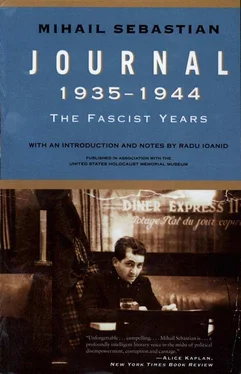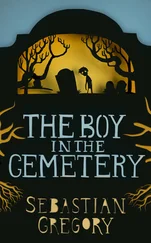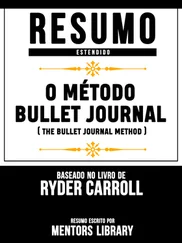The considerable debate generated by Sebastian’s diary after its first Romanian edition in 1996, brilliantly edited by Leon Volovici, showed once again that anti-Semitism remains a fundamental element of Romanian culture — called by George Voicu a “culture of idols and taboos.” The idols are essentially the same extreme right intellectuals with whom Sebastian socialized. The taboos prohibit any serious critical examination of these idols. A few days before his death in 1997, Petru Cretia, a distinguished Romanian intellectual, wrote, “I have seen irrefutable [evidence of the] fury aroused by Sebastian’s Journal and of the feeling that lofty national values are besmirched by such calm, sad, and forgiving revelations on the part of a fair-minded (often angelic) witness.” Under these circumstances, it remains difficult if not impossible to engage in a serious discussion about any challenge to Romania’s self-image and selfdefinition as a nation of eternal victims, never perpetrators.
Much of the Romanian intelligentsia keeps alive a mainstream cultural anti-Semitism that is perhaps more subtle but no less dangerous. Since the Holocaust it has become more difficult for some of these intellectuals to be at once openly pro-Western and anti-Semitic. And they often depend on recognition and funding provided by the West. Nevertheless their anti-Semitic message remains obvious. Thus while mainstream Romanian anti-Semitic intellectuals do not deny the Holocaust, they barely acknowledge it, and do so only in order to compare it with the crimes of communism. Many pay lip service to Jewish suffering caused by the Holocaust, only to charge immediately that these same Jewish victims were guilty of bringing communism to Eastern Europe and becoming the new perpetrators. Some also allege that a powerful Jewish lobby maintains a monopoly on suffering and thus denies the victims of the Gulag their right to memorials and commemorations. In a March 1998 article, Nicolae Manolescu suggested that Jews sought to monopolize the process of “unmasking the crime against humanity.” He also said that “indirect evidence supporting my suspicion is the trial in France against Garaudy, who did not say that there was no Holocaust, but only that a terrible lobby was organized around it. Well the loss of the monopoly over this specific issue seems to make some people nervous. It is not correct and it is immoral,” he wrote, “to cover the mouths of the millions of victims of communism fearing that not enough people will remain to mourn the victims of Nazism.”
The novelist Norman Manea, a survivor from Transnistria whose article in the New Republic in April 1998, “The Incompatibilities,” triggered the debate over Sebastian’s diary, and Michael Shafir, a political scientist who analyzed this debate, have elicited vitriolic attacks in Romania. Du-mitru Tsepenag, a Romanian dissident under communism, has observed that the authors of these types of attacks are responsible for the likelihood that Romania will continue to carry the “infamous tag of an anti-Semitic country.” George Voicu has noted that many Romanian intellectuals refuse to acknowledge that “the cultural anti-Semitism of the Romanians is in fact an issue of the Romanian culture, not a ‘Jewish issue’; not at all a secondary issue but an essential one. Those whose duty is to research it, to assess it, to solve it, are primarily the Romanian intellectuals. . As long as Romanian intellectuals see this issue as a secondary, irrelevant, embarrassing, entertainment-value topic, or even more disturbingly, as an anti-national or false issue that when tackled amounts to a sacrilege, as long as Romanian culture remains under the pressure of idolatrous complexes pulling it back to an obsolete era, Romania will be condemned to a peripheral, exotic status, pervious only in the tiniest degree to the values of European and universal culture.” As Sebastian himself put it in his diary in August 1944, a week after the overthrow of the Antonescu regime and a few months before his death, “Romania will regain its senses when the problem of responsibility is posed in earnest. Otherwise, it would all be too cheap.”
Principal Figures Mentioned in the Book
HAIG ACTERIAN, theatre producer, active Iron Guard member, husband of Marietta Sadova.
FELIX ADERCA, Jewish novelist and friend of Sebastian's.
SICĂ ALEXANDRESCU, theatre producer.
MADELEINE ANDRONESCU, friend of Sebastian's.
ION ANTONESCU, general, fascist dictator of Romania, 1940–1944.
MlHAl ANTONESCU, minister of justice, later minister of foreign affairs and deputy prime minister in the Antonescu government.
CONSTANTIN ARGETOIANU, politician, prime minister September-November 1939.
ALEXANDRU AVERESCU, general, prime minister March 1926-June 1927.
BABA, nickname of Sebastian's grandmother.
CAMIL BALTAZAR, novelist.
JULES BASDEVANT, French diplomat.
RADU BELIGAN, actor.
JOSÉ BEREŞTEANU, manager of the Comoedia theatre.
ANTOINE BIBESCU, prince, close friend of Sebastian's.
ARISTIDE BLANK, banker.
DORINA BLANK, daughter of Aristide Blank, friend of Sebastian's.
AGNIA BOGOSLAV, actress.
GEO BOGZA, writer and journalist.
GEORGE BRĂTIANU, leader of the right-wing faction of the Liberal party.
TONY BULANDRA, actor.
LENI CALER, actress and friend of Sebastian's.
NICOLAE CARANDINO, journalist.
CAROL II, King of Romania 1927–1940.
DEMETRU CEACĂRU, Jewish journalist.
RADU CIOCULESCU, literary critic and brother of Şerban Cioculescu.
ŞERBAN CIOCULESCU, literary critic and brother of Radu Cioculescu.
ALEXANDRU ClORĂNESCU, literary historian.
GINA COCEA, wife of the novelist N. D. Cocea (also Gina Manolescu-Strunga, also Gina Ionescu).
TANTZI COCEA, actress.
CORNELIU ZELEA CODREANU, leader of the Iron Guard.
PETRU COMARNESCU, art critic, friend of Sebastian's.
IOAN COMŞA, friend and law colleague of Sebastian's.
N. M. CONDIESCU, general, novelist, president of the Romanian Writers' Association.
LENA CONSTANTE, artist, friend of Sebastian's.
NICUŞOR CONSTANTINESCU, theatre director, playwright.
NICHIFOR CRAINIC, extreme right journalist, author of a xenophobic and racist National Christian fundamentalist theory.
NICOLAE CREVEDIA, extreme right anti-Semitic journalist.
JENI CRUŢESCU, friend of Sebastian's.
A. C. CUZA, one of the main "theorists" of Romanian anti-Semitism, leader with Octavian Goga of the heavily anti-Semitic Goga-Cuza government.
GH. CUZA, son of A. C. Cuza, member of the Goga-Cuza government.
ARMAND CĂLINESCU, prime minister 1937–1939, coordinator of the repression against the Iron Guard.
GEORGE CĂLINESCU, literary critic.
TITU DEVECHI, journalist and close friend of Sebastian's.
VICTOR EFTIMIU, playwright.
SANDU ELIAD, theatre producer.
MIRCEA ELIADE, novelist, historian of religions, ardent supporter of the Iron Guard, friend of Sebastian's.
MIHAI EMINESCU, nineteenth-century poet considered the creator of the modern Romanian language, a strong anti-Semite.
GEORGE ENESCU, famous Romanian composer.
ŞTEFAN ENESCU, Sebastian's friend (pen name Ştefan Mincu).
WILHELM FILDERMAN, leader of the Romanian Jewish Community.
BEATE FREDANOV, actress.
SCARLAT FRODA, theatre director and literary commentator.
GRIGORE GAFENCU, politician and diplomat.
MARIA GHIOLU, friend of Sebastian's and wife of Stavri Ghiolu.
ION GIGURTU, foreign minister, prime minister July-September 1940.
GENERAL HENRI CONSTANTIN GIURESCU, historian.
OCTAVIAN GOGA, prime minister December 1937-February 1938, leader with A. C. Cuza of the Goga-Cuza government.
MIRON GRINDEA, journalist.
Читать дальше











